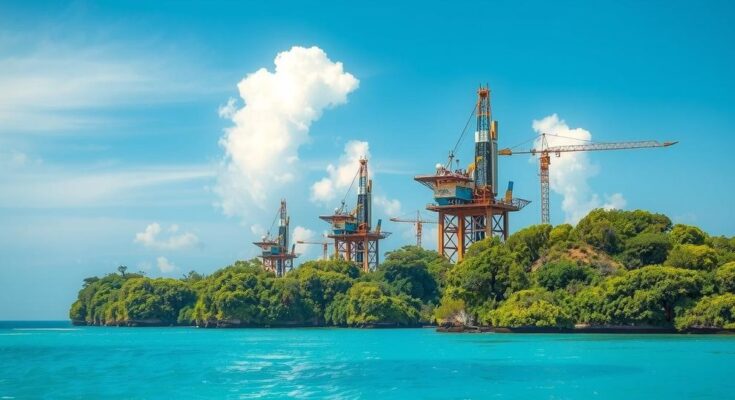Secretary of State Marco Rubio’s visit to Guyana aims to establish a security agreement amid rising tensions with Venezuela over oil-rich territories. The US is developing closer military cooperation with Guyana, which is set to become a top oil producer, while highlighting the geopolitical dynamics in play with its neighboring country. Recent actions indicate a strategic focus on maximizing production and securing US interests in the region.
On Thursday, Secretary of State Marco Rubio intends to visit Guyana to extend a security partnership, as Venezuela increases claims over the oil-rich nation. Guyana, which has seen significant oil discoveries in recent years, is set to emerge as the world’s largest oil producer on a per capita basis, exceeding even major producers like Qatar and Kuwait. The agreement to be signed will detail security cooperation amid escalating tensions with Venezuela, reported the State Department.
Rubio’s visit follows discussions with Caribbean nations in Jamaica, and he will also travel to Suriname, which is seeing its own rise in oil production. The Trump administration aspires to forge a relationship with Guyana similar to alliances with affluent Gulf Arab nations that host US military forces for protection against regional threats such as Iran. Mauricio Claver-Carone, the US special envoy for Latin America, emphasized that Guyana’s security is a priority due to the threats posed by Venezuela, stating, “The security of Guyana is a key priority for us… We’ve seen the threats from Venezuela.”
Despite Guyana’s former colonial history and the poverty faced by most of its population, there has been an interest in closer ties with the United States, though no official discussion about statehood is expected. President Trump has expressed a willingness to consider territorial expansion in the hemisphere, further promoting engagement with nations like Guyana.
President Irfaan Ali of Guyana is advocating for stronger defense ties with the US, including joint maritime patrols, as Venezuela, led by Nicolás Maduro, continues to assert claims over the Essequibo region, a significant area for oil extraction. Guyana recently condemned a Venezuelan military ship’s incursion into its waters, while Venezuela has contested this assertion and sought dialogue, which was rebuffed by Ali.
Guyana and Venezuela’s border disputes hinge on an 1899 arbitration ruling, with Venezuela proposing a bill to annex Essequibo, a move rejected internationally. The Trump administration emphasizes maximizing oil production, seeing economic and security benefits contrary to former President Biden’s push for renewable energy. ExxonMobil’s operations in Guyana are projected to yield significant production growth, while Venezuela’s oil industry continues to falter due to historical mismanagement and sanctions.
Consequently, the administration, pressed by anti-communist lawmakers, has revoked an exemption for Chevron concerning Venezuela, reflecting a strategic pivot towards enhancing US oil interests in the region and counteracting Venezuelan influence.
In conclusion, Secretary of State Marco Rubio’s impending visit to Guyana highlights the growing security partnership between the United States and the oil-rich nation amidst rising tensions with Venezuela. The signing of the memorandum of understanding symbolizes a strategic maneuver by the Trump administration to bolster Guyana’s defense capabilities while enhancing American oil production interests in the region. The complexities of historical border disputes with Venezuela further underline the geopolitical implications of this relationship.
Original Source: www.albianews.com




